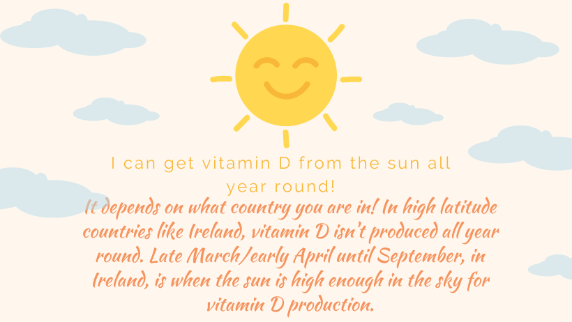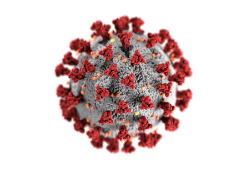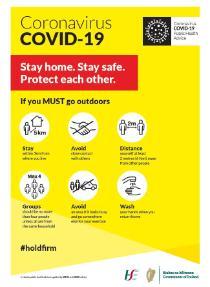Vitamin D: sources, function and Covid-19
Vitamin D sources, requirements, benefits, and its relationship with Covid-19.
Vitamin D and Covid-19 have been a recent topic of conversation. The interest surrounds how vitamin D could potentially play a role in reducing the impact of Covid-19 on the human body. This article will provide important facts in relation to vitamin D and Covid-19. Vitamin D is an important vitamin which is required by the body, its importance should not be neglected or associated only with potentially reducing the impact of Covid-19 on the body.
How much vitamin D do I need?
18 to 65 year olds = 10 ug per day
Where can I get vitamin D from?
- Eggs and oily fish are natural sources of vitamin D but vitamin D is only present in small amounts.
- Cod liver oil
- Fortified milks
- Fortified cereals
- Sunshine: 5 to 15 minutes of casual sun exposure to hands, arms, and legs 2 to 3 times, a week stores enough vitamin D to last 30 to 60 days.
- Supplement: a vitamin D supplement of 10ug is advised when entering winter months due to the lack of sunshine resulting in poor amounts of vitamin D being produced on the skin.

Who is at risk of being vitamin D deficient?
- Breast fed infants - breast milk does not have enough vitamin D in it.
- Older adults- their skin cannot make as much vitamin D as it use to, also due to limited exposure to sun.
- People with limited sun exposure- limited sun exposure results in very little vitamin D being produced.
- People with dark skin- large amounts of pigments reduces the skins ability to produce vitamin D.
- People who are obese- larger amounts of fat requires larger amounts of vitamin D.
Can vitamin D prevent Covid-19?
No, vitamin D cannot prevent Covid-19. Vitamin D has been linked with reducing respiratory infections such as the common cold and the flu, suggesting that people who have a high amount of vitamin D in their body are less likely to suffer badly with these infections. This same concept is associated with Covid-19. Research is suggesting that people who have high amounts of vitamin D in their body are less likely to suffer badly with Covid-19. However, stronger research is required to prove the relationship between vitamin D and Covid-19.
The relationship between vitamin D and Covid-19 has not been proven but studies suggest that vitamin D can potentially reduce the impact of Covid-19 on the body.
If you are interested in finding out more, look at the following studies:
- Myths and Facts on Vitamin D amidst the Covid-19
 pandemic: (opens in a new window)https://www.ncbi.nlm.nih.gov/pmc/articles/PMC7250097/
pandemic: (opens in a new window)https://www.ncbi.nlm.nih.gov/pmc/articles/PMC7250097/ - Evidence that Vitamin D supplementation could reduce risk of Influenza and Covid-19 Infections and Deaths: (opens in a new window)https://www.ncbi.nlm.nih.gov/pmc/articles/PMC7231123/
- Role of Vitamin D in preventing of Covid-19 infection, progression and severity: (opens in a new window)https://www.ncbi.nlm.nih.gov/pmc/articles/PMC7305922/
Why should I take vitamin D if it will not 100% protect me from Covid-19?
Vitamin D is an essential nutrient that is needed by the body to ensure a normal healthy lifestyle with benefits of reducing the risk of illnesses, diseases and deficiencies which are mentioned below:
- Vitamin D plays an important role in bone health, growth, and absorption of calcium into the gut. Vitamin D and calcium work together to protect the bones. Without vitamin D, bone quality will be poor causing brittle bone disease.
- Vitamin D prevents rickets, osteomalacia and osteoporosis.
- Vitamin D improves the immune system and protects it, reducing the risk of tuberculosis, multiple sclerosis, and diabetes.
Once vaccinated, I do not have to continue taking a vitamin D supplement.
Vitamin D is important for the body whether Covid-19 is around or not, even after vaccination. Supplementation of vitamin D has been suggested to ensure requirements are being met during the winter months, even prior to Covid-19.
You may not choose to contiune to take a vitamin D supplement, but it still can be sourced through fortified milks and other sources mentioned earlier. When summer months approach, supplementation can be reduced when time in the sun increases resulting in vitamin D production on the skin. People who do not spend a lot of time outside should contiune to supplement.
Who is at risk of contracting Covid-19?
People who:
- have low levels of vitamin D (deaths of people have been linked with poor vitamin D levels)

- are over 60 years of age
- over 70 years of age (high risk)
- have a learning disability other than down syndrome
- are being treated for cancer (not at very high risk)
- have a weak immune system
- have underlying health issues
The take home message from this article is to understand that vitamin D is very important for a persons body and their overall health, regardless of its potential relationship with Covid-19. Until more evidence of this relationship has been provided through research, vitamin D supplementation and intake should continue to be a priority to maintain optimal health.
References
Aranow, C (2011) Vitamin D and the immune system, J Investig Med, August, 59(6), pp.881 - 886. [Online] Available at: NCBI (opens in a new window)https://www.ncbi.nlm.nih.gov/pmc/articles/PMC3166406/ [Accessed 10 March 2021].
Camacho, P.M. (2017) The role of Calcium and Vitamin D in Bone Health. [Online] Available at:(opens in a new window)https://www.endocrineweb.com/conditions/osteoporosis/role-calcium-vitamin-d-bone-health#:~:text=Calcium%20and%20vitamin%20D%20work,re%20deficient%20in%20vitamin%20D
Chaktoura, M., Naploi, N, and Fuleihan, G. H. E. (2020) Commentary: Myths and facts on Vitamin D amidst the COVID-19 pandemic, Metabolism Clinical and Experimental, May. [Online] Available at: NCBI (opens in a new window)https://www.ncbi.nlm.nih.gov/pmc/articles/PMC7250097/ [Accessed 10 February 2021].
Demir, M., Demir, F, and Aygun, H. (2021) Vitamin D deficiency is associated with COVID-19 positivty and the severity of the disease, Journal of Medical Virology. Janurary. [Online] Available at: (opens in a new window)https://academic-oup-com.ezproxy.ait.ie//qjmed/advance-article/doi/10.1093/qjmed/hcaa234/5879283 [Accessed 10 February 2021].
Food Safety Authority of Ireland (1999) Recommended dietary allowances 1999/FSAI. [Online] Available at: (opens in a new window)https://www.lenus.ie/handle/10147/44808 [Accessed 2 February 2021].
Food Safety Authority of Ireland (2020) Vitamin D scientific recommendations for food-based dietary guidelines for older adults in Ireland. P.10. [Online] Available at: (opens in a new window)https://www.fsai.ie/search-results.html?searchString=vitamin%20d [Accessed 10 February 2021].
Health Service Executive (2021) People at higher risk from COVDI-19. [Online] Available at: HSE (opens in a new window)https://www2.hse.ie/conditions/coronavirus/people-at-higher-risk.html#high-risk [Accessed 10 March 2021].
Health Service Executive (2021) Vitamin D and Sun Exposure- A Balanced Approach. [Online] Available at: (opens in a new window)https://www.hse.ie/eng/services/list/5/cancer/patient/leaflets/vdsun%20expo.pdf [Accessed 9 March 2021].
Irish Cancer Society (2021) Vitamin D and the sun. Irish Cancer Society. [Online] Available at: (opens in a new window)https://www.cancer.ie/cancer-information-and-support/cancer-types/skin-cancer/vitamin-d-and-the-sun [Accessed 3 February 2021].
IUNA (2010) National Adult Nutrition Survey (NANS 2008-2010) [Online] Available at:(opens in a new window)https://www.iuna.net/surveyreports [Accessed 15 March 2021].
Laird, E., Ward, M., McSorley, E., Strain, J.J, and Julie, W. (2010) Vitamin D and bone health; potential mechanisms, Nutrients, July, 2(7), pp. 693-724. [Online] Available at: NCBI (opens in a new window)https://www.ncbi.nlm.nih.gov/pmc/articles/PMC3257679/ [Accessed 10 March 2021].
Nair, R, and Maseeh, A. (2012) Vitamin D: the 'sunshine' vitamin D, Journal of Pharmacology & Pharmacotherapeuties. April to June, 3(2), pp. 118-126. [Online] Available at: NCBI (opens in a new window)https://www.ncbi.nlm.nih.gov/pmc/articles/PMC3356951/#ref3 [Accessed 9 February 2021].
National Adult Nutrition Survey (2011) Summary report on food and nutrients intakes, physical measurements, physical activity patterns and food choice motives. [Online] Available at: (opens in a new window)NATIONAL ADULT NUTRITION SURVEY (multiscreensite.com) [Accessed 2 February 2021].
National Institutes of Health (2020) Vitamin D Fact Sheet for Health Professionals. National Institutes of Health. [Online]. Available from: (opens in a new window): https://ods.od.nih.gov/factsheets/VitaminD-HealthProfessional/ [Accessed 8 February 2021].
